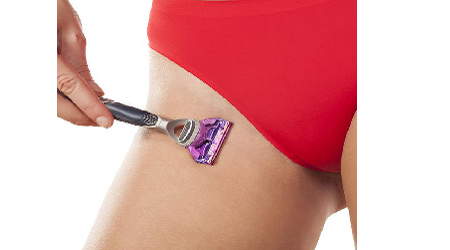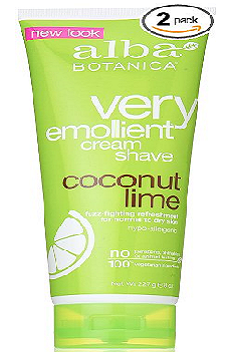Myths : pros and cons of shaving female pubic hair. What happens if you don't shave your pubic area?. Pubic hair does have a purpose, providing a cushion against friction that can cause skin abrasion and injury, protection from bacteria and other unwanted pathogens, and is the visible result of long-awaited adolescent hormones, certainly nothing to be ashamed of or embarrassed about.
Pros and cons of shaving female pubic hair. Myths are born where there's lack of awareness. Your vagina and the pubic hair around it are perfect victims of such myths. We turned to the experts to separate fact from fiction when it comes to your pubic hair.
Female pubic hair growth. Everything you need to know about women's pubic hair and how it affects women's sex lives and sexual health, that it might also serve as a cushion of sorts to protect against friction from sex or other forms of exercise, or even a covering to keep those parts warm (like much of the rest of our body hair). There are some good reasons for not shaving, waxing, or otherwise removing your pubic hair.
Question: What's the purpose of pubic hair? Especially because it seems everyone is taking theirs off these days. The human body is an amazing construction. All the parts work together to do what needs to be done, and everything has a purpose. The purpose of pubic hair. One theory that's not quite as reasonable, though still slightly plausible, is that the hair's purpose is to reduce friction. Pubic hair is body hair found in the genital area of adolescent and adult humans. But why should you remove your pubic hair? First of all (and perhaps to many the most important reason), shaving it can make your erection look positively huge.
Maybe you wax it. Maybe you shave. Or maybe you just leave well enough alone. There are plenty of ways to deal with your pubic hair, and plenty of rumors about it, too. We turned to the experts to separate fact from fiction when it comes to the land down under.
Tag: what happens if you don't shave your pubic area | pros and cons of shaving female pubic hair | female pubic hair growth | pubic hair benefits | the purpose of pubic hair
6 Pubic Hair Myths It's Time You Stopped Believing
MYTH: Pubic hair protects against STDs.
Reality: Actually, quite the opposite. Pubic hair acts as a breeding ground for bacteria. "There's no question that being hair-free in that area is cleaner simply because of the fact that the hair does provide bacteria," says Wendy Askew, MD, an ob-gyn with the Institute for Women's Health in San Antonio. While researchers haven't studied germs in pubic hair specifically, studies have shown alarming amounts of bacteria in men's beards, says Askew.
Still, many women incorrectly assume pubic hair protects them from genital warts and STDs that result from skin-to-skin contact. "Pubic hair alone is not sufficient enough to protect against STDs," says Sejal Shah, MD, a New York City dermatologist and RealSelf contributor. In fact, it could help the virus thrive. A Chinese study concluded HPV present in a man's pubic hair could lead to HPV-related issues in their female partners.
MYTH: Pubic hair makes sex less enjoyable.
Reality: This one varies from woman to woman. Many think pubic hair leads to less friction between the sheets, making sexy time a bit smoother. (And pubic hair does help cushion and protect the area, says Shah.) But, some women prefer the more intense feels that happen when they're hair-free, adds Askew. "In theory, you can get more direct stimulation without that buffer," she says. "It depends on how much women prefer, and how much stimulation or pressure they require to achieve orgasm, [as to whether] the hair may or may not be a hindrance."
MYTH: The color of your pubes matches the color of your hair.
Reality: Ah, the classic "does the curtain match the drapes?" dilemma. Truth: The age-old expression is a sham. If you must know, check out a lady's brows for a more accurate prediction. "For the most part, pubic hair tends to match eyebrow color, except that it's a little bit courser," says Askew.
MYTH: A full bush is a turn-off.
Reality: Technically, it depends on your partner, but there is some evidence that pubic hair could be a turn-on because it's full of pheromones. "The sebaceous glands, which are so prevalent in hair-bearing skin, produce what starts as an odorless secretion," says Askew. "Then, it mixes with the bacteria that we have on the skin and in the hair, and it produces a scent called a pheromone. You will have more of an odor or a smell if you have pubic hair or if you don't groom because the bacteria populations are going to be there." People who are scent-sensitive might be attracted to it.
MYTH: Pubic hair never stops growing.
Reality: Thankfully—for groomers and those who go au naturel—the hair stops growing when it reaches a certain point, says Askew. "It will stop and basically stay at a certain level, and then it will shed and new ones will grow," she says. The length at which it halts varies from person to person, but Shah says it generally stops between 0.5 and 2 inches. Eventually, it might even become thinner. "We typically see it after women go through menopause and they have hormone deficiencies," says Askew. "A majority of women experience not only losing the hair—maybe they'll go completely bald—but the hair will become much more sparse, much finer, and much less densely populated."
MYTH: If you have sensitive skin, you shouldn't shave down there.
Reality: You may just need to adjust your approach. (This is the right way to shave your bikini line.) "If you shave aggressively real close to the skin and don't use some kind of emollient shave cream, you are going to be more prone to breaking or nicking the skin," says Askew. "Then, the bacteria that live down there naturally have access to get under the skin and cause bumps and infections." If smoothness is your goal, try a shave cream like Alba Botanica Very Emollient Coconut Lime Shave Cream ( amazon.com) or consider other hair-removal methods like waxing or laser hair removal.
You're probably all familiar with the pros of removing your pubic hair (otherwise why would we do it?), but the cons – besides hassle because long pubic hair and ingrown hairs - from itchiness. For years, men and women have turned to razors and wax strips to rid themselves of hair downstairs. Between 70-80% of adults remove their.



Add Your Comments